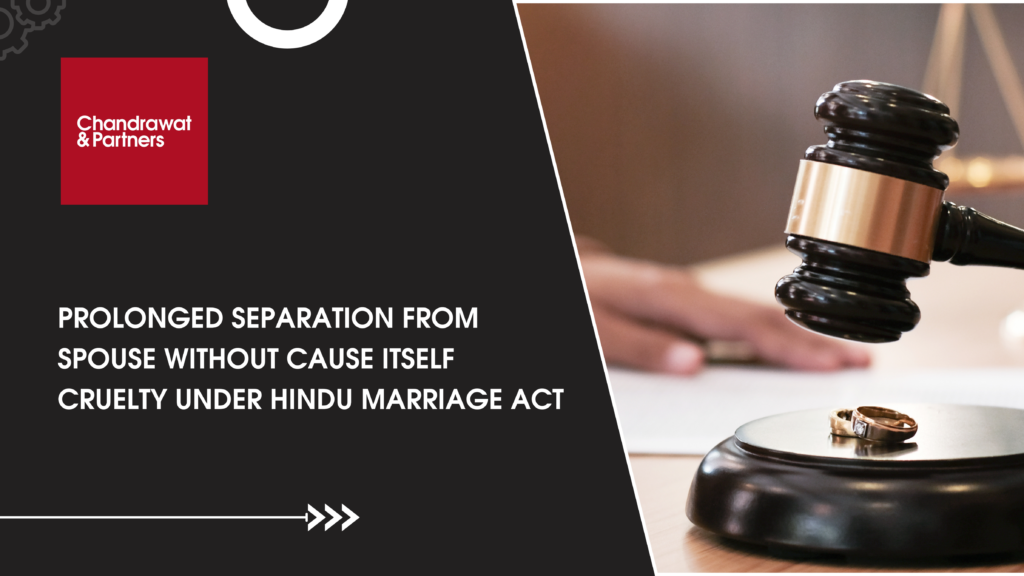Share :
Introduction
The Allahabad High Court’s recent affirmation of a divorce decree highlights the complexities of marital relationships and the legal considerations surrounding them. In the case of Charu Chug Alias Charu Arora vs. Madhukar Chugh, a married couple, living separately for nearly 13 years, underwent legal proceedings leading to a divorce decree issued by the lower court. The grounds for divorce centred around allegations of mental cruelty, shedding light on the evolving understanding of marital discord beyond physical harm.
CASE BACKGROUND
The marriage between the parties was solemnized in 2002 according to Hindu rites. However, the couple’s life together was tumultuous, marked by periods of separation and relocation. Despite attempts at reconciliation, the relationship continued to deteriorate, prompting the husband to file for divorce. Allegations of both mental and physical cruelty were exchanged, creating a complex legal backdrop for the court’s deliberations.
LEGAL PROCEEDINGS
The divorce petition invoked Sections 13(1) (ia) and (ib) of The Hindu Marriage Act, alleging cruelty and desertion. The court meticulously examined the evidence presented by both parties, including testimonies and written statements. Despite efforts at conciliation and the absence of concrete evidence supporting the wife’s counterclaims, the court grappled with determining the veracity of the allegations and the viability of the marriage.
JUDICIAL PRECEDENTS
The court’s decision was informed by established legal precedents addressing similar cases of marital discord. References to landmark judgments such as Rakesh Raman vs. Smt. Kavita and Rajib Kumar Roy vs. Sushmita Saha underscored the evolving jurisprudence surrounding irretrievable breakdowns of marriage and the interpretation of cruelty within matrimonial relationships.
CONSIDERATION OF IRRETRIEVABLE BREAKDOWN
A significant aspect of the court’s deliberation was the acknowledgement of the irretrievable breakdown of the marriage. Drawing from legal principles and scholarly discourse, the court recognized the emotional toll and practical impossibility of sustaining the marital bond, thereby legitimizing the grounds for divorce beyond conventional legal frameworks.
ANALYSIS OF CRUELTY AND DESERTION
The court meticulously analyzed the allegations of cruelty and desertion, weighing the evidence presented by both parties. Despite the gravity of the accusations, the court found the appellant’s claims unsubstantiated and lacking in merit. The nuanced examination of the marital dynamics elucidated the intricacies of establishing legal grounds for divorce in cases of prolonged separation and psychological distress.
CONCLUSION
In concluding its deliberations, the court upheld the lower court’s decision, dismissing the appellant’s plea for divorce. The judgment underscored the importance of evidence-based adjudication and the nuanced consideration of legal principles in navigating complex marital disputes. Moreover, it reaffirmed the evolving legal discourse surrounding irretrievable breakdowns of marriage and the interpretation of cruelty within matrimonial relationships, shaping the contours of family law jurisprudence for future cases.
For more information or queries, please email us at
enquiries@chandrawatpartners.com




